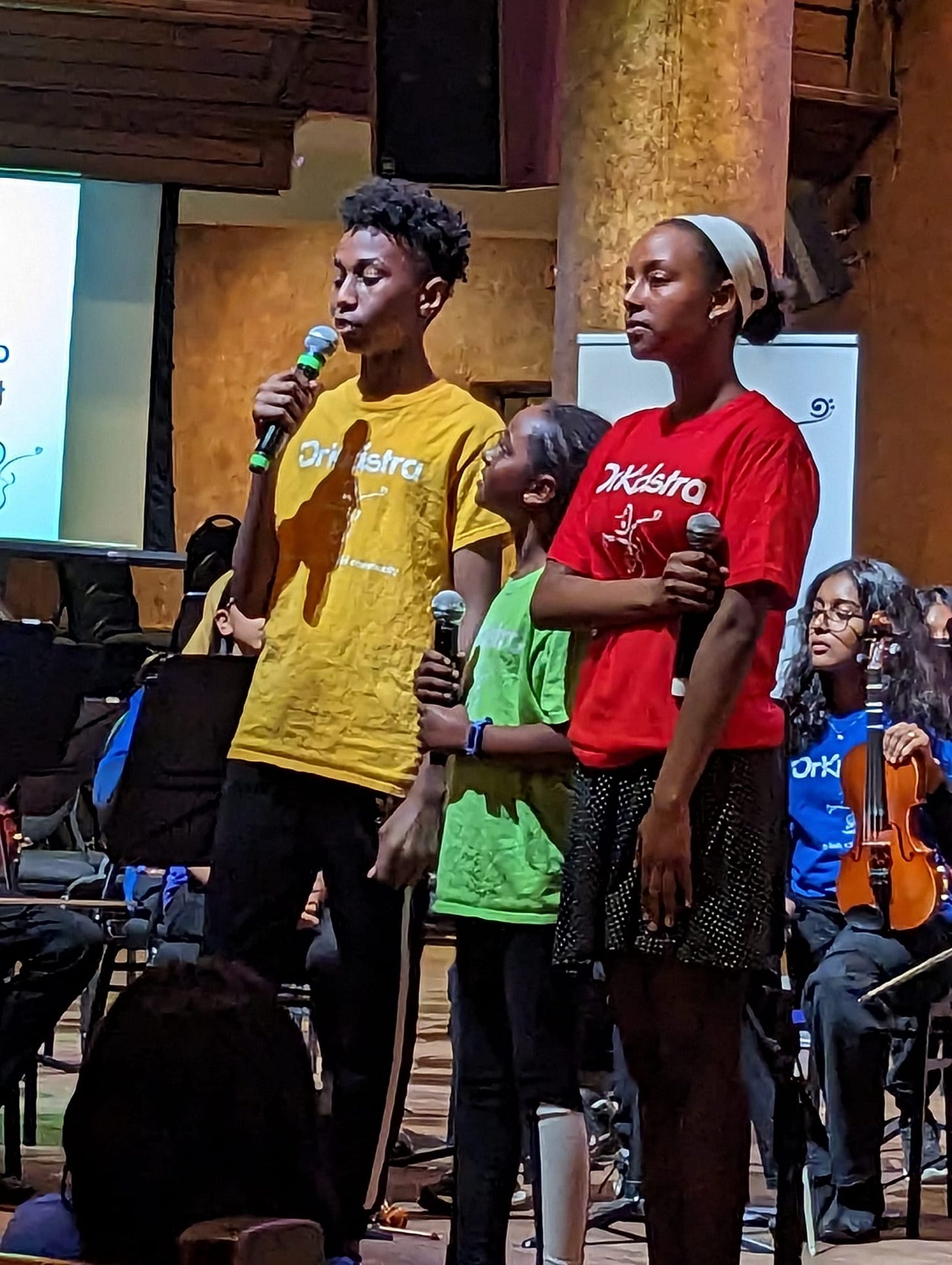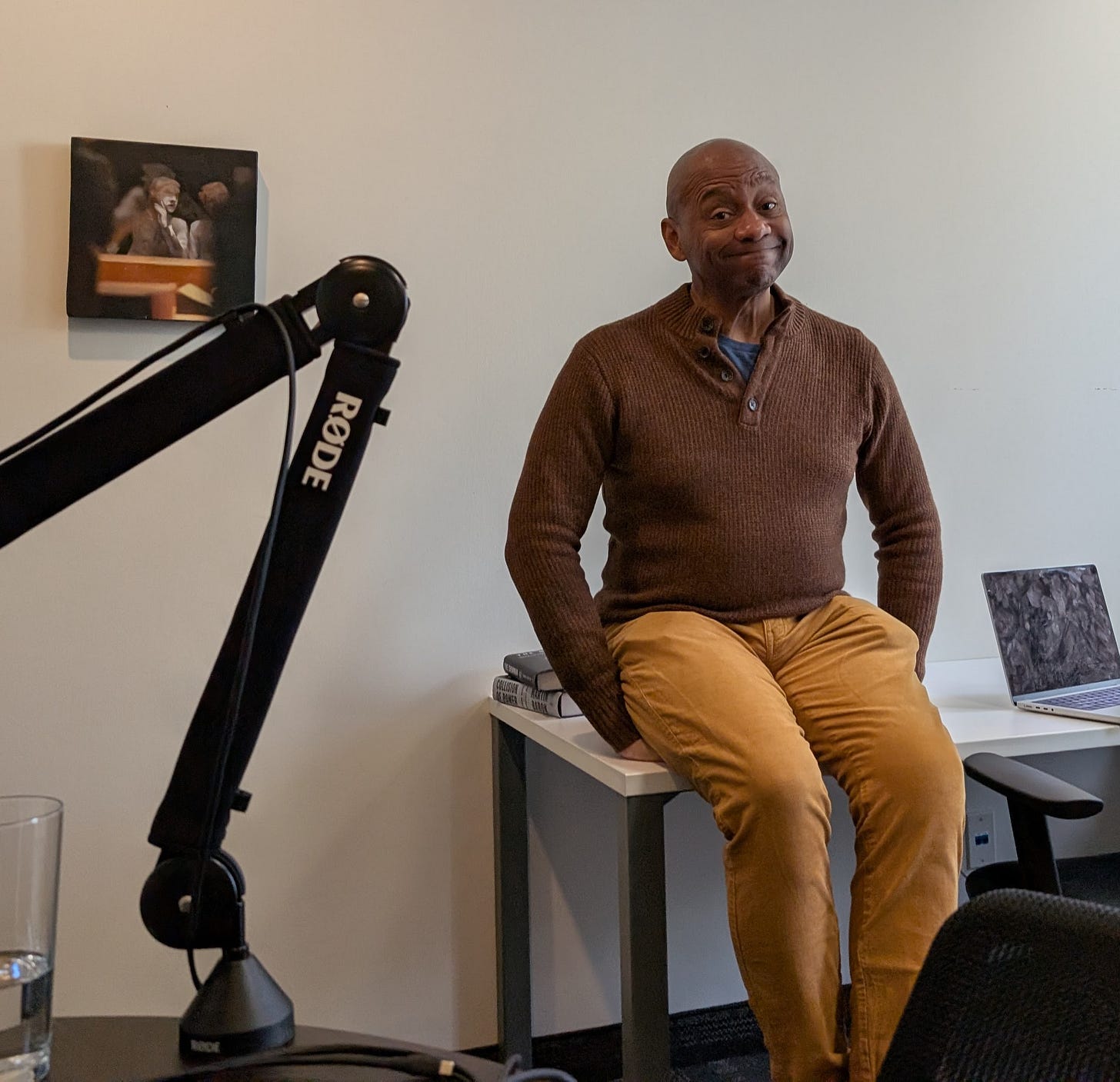Branford Marsalis is playing in Ottawa with the National Arts Centre Orchestra on Wednesday and Thursday, Jan. 22 and 23. He’ll play what was originally the singer’s part for Peter Lieberson’s Neruda Songs, which is almost heartbreakingly dark and beautiful, and the music John Williams wrote for the Steven Spielberg movie Catch Me If You Can. If you’re in town, you know what to do. I’ve been catching up periodically with Branford for most of my life, so I asked him to drop by my office near the NAC.
He’s 64 now. All the stuff about him that people — well, jazz fans — used to argue about is decades in the past. He was the sax player in his younger brother Wynton’s band. He left to play with Sting. It took Wynton a while to get over that. Branford put together a remarkable jazz quartet — seriously, jazz fans, check out the 1990 Munich concert — then left that to lead Jay Leno’s house band. Now he does some teaching and tours with another formidable jazz quartet of unusually long standing — the drummer, Justin Faulkner, became the new kid in the band 15 years ago.
One element Marsalis added late-ish in his career was his work playing classical repertoire and the work of contemporary composers with symphony orchestras. He’s self-deprecating about it — he told me he’s lately been “less shitty” — and the saxophone is not a prominent solo instrument in classical music, so it’s never going to overtake his jazz work. But orchestras love to have him visit. There’s a buzz in Ottawa this week. Fortunately he’s a frequent guest of the NAC Orchestra.
Early in our interview I mention a piece he recorded two years ago for the Netflix movie Rustin, which starred Colman Domingo as the civil-rights pioneer Bayard Rustin. It’s essentially a jazz ballad.
And then I mention some Mahler songs he recorded with the Virginia Symphony. Different horn, different idiom, different orchestration. To me the common element is the haunting and highly characteristic sound Marsalis gets from his horns in either setting.
(We also talked about a young pianist, Sean Mason, who studied with Branford in North Carolina and with Wynton Marsalis at Juilliard. Here’s video of Sean Mason in action. And here’s the 1926 Jelly Roll Morton solo that Mason had the guts to learn.)
The biggest news in Marsalis’ life is that he’s moved home to New Orleans after 45 years away, including two decades in Durham, where he taught (and still teaches) at North Carolina Central University. He’s now the artistic director of the Ellis Marsalis Center for Music, named for Branford’s late father, the great pianist and jazz educator Ellis Marsalis.
It’s as much a social hub as a music school, the kind of third place that knits communities together, lets children and their families interact in constructive ways, and makes great things possible.
I recognized the model immediately. I’ve been involved since 2017 with a similar organization in Ottawa. It’s called OrKidstra. It provides free music lessons, and long-term instrument loans, to children whose families often couldn’t afford either. OrKidstra’s impact on school success and community-building is extraordinary, and our kids just tend to raise spirits wherever they show up:
So I know Branford won’t mind me making this plug. On Feb. 14, only three weeks hence, OrKidstra’s students are going to play a special fundraising concert alongside the musicians of the National Arts Centre Orchestra. The NAC musicians and their music director, Alexander Shelley, have been unbelievably generous in sharing their knowledge and love of music with OrKidstra’s students. Now they’ll all share a stage together. The students will remember this night for the rest of their lives. This will be a wonderful concert. I’ll be the onstage host, I’ll be at the VIP reception beforehand, and you can help make Ottawa better by getting your tickets. I’ll see you at the concert.
As for Branford Marsalis, he’ll be in Quebec City, Kingston and Toronto in the next several days with his quartet, and at the Montreal International Jazz Festival — and, one suspects, other summer festivals — later this year. It was good to have him over to the office.
You can listen to this episode on Apple Podcasts and a bunch of other platforms via the “Listen On” button that you can see at the top of this post when you view it on your desktop browser. If you listen on a podcast platform, hit “Like” and “Subscribe” buttons, and leave a good review, to help spread the word.
You can read a (machine-generated) transcript of this week’s episode via the "Transcript” button at the top of this page when you view it on your desktop browser.
I am grateful to be the Max Bell Foundation Senior Fellow at McGill University, the principal patron of this podcast. Antica Productions turns these interviews into a podcast every week. Kevin Breit wrote and performed the theme music. Andy Milne plays it on piano at the end of each episode. Thanks to all of them and to you. Please tell your friends to subscribe to The Paul Wells Show on their favourite podcast app, or here on the newsletter.
















Share this post